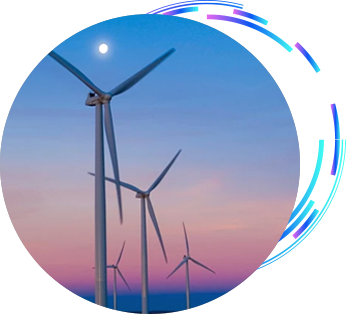
Electricity System
In March 2015, the State Council and the Central Committee of the Communist Party—representing the highest levels of authority in China—launched a major power sector reform push. As market reform develops in China, political economy obstacles have emerged, as well as needs for a quantitative sense of how different policy options might impact on different stakeholders.
While several organisations are actively cooperating with China in power sector reform, the EU with ENTSOe grid planning methodology offers the only example globally for efficient and comprehensive grid planning at the scale of the EU or China. Efficient grid planning based on an overall least-cost approach, combined with emphasis on RE integration and CO2 emissions reductions can result in significant benefits towards global CO2 mitigation. National large size grid planners in China and ENTSOe have similar tasks in developing coordinated grid planning across a very large system, consisting of sub-systems.
The overall objective of “Showcasing of ENTSOe Grid Planning Methodology in China” will showcase the critical linkage between grid planning and power market reform. And thus support the modernization of top-level grid planning in China.
The international and Chinese core team will gain insights into how grid planning is carried out in practice in EU and China, how power market reform could influence China’s grid planning in the future and how the ENTSOe grid planning methodology could help with grid development planning in China.

LNG Natural Gas Market
China is expected to account for more than 40 percent of global gas demand growth to 2024 and together with the United States, will account for over 50 percent of total global production increase, according to the IEA. While in the EU Natural gas provides for around 25% of all energy consumed and is an important feature of the EU’s Roadmap to 2050. Price and security of supply therefore are two main issues shared by EU member states and China.
China has recently opened up her national gas transmission network, gas storage, LNG ports and storage for third party access which will provide great business opportunities. EU companies with strong experience in expertise will be well poised to participate in China’s gas market.
ECECP will explore common topics of interest in global LNG market development, diversifying supply and how it should compete with traditional piped gas as well as providing opportunities for EU and Chinese business to share experience with and to communicate possible barriers to policy developers and decision makers.

Renewables
The EU is a global leader in renewable energy development and made significant innovations while China’s renewable energy sector is developing rapidly and has the largest installed capacity of renewable energy in the world. Successful cooperation between China and the EU in renewable energy development will make enormous impact in global clean energy transition.
ECECP will explore the next steps in promoting renewable energy and how to better integrate renewable energy into the energy system. Through a series of meetings and visits, Chinese and European governments, enterprises and researchers can better understand current situations, policy, development and market opportunities in China and the EU.

Energy Efficiency
The EU has achieved enviable energy efficiency gain in the past decades, and in recent years, China has also achieved impressive energy savings. Cooperation between China and the EU in this area will bring significant benefits to each others’ industrial, construction and transportation sectors.
ECECP will focus on two themes in the field of energy efficiency: (1) Using market-based mechanisms to promote energy efficiency. Through sharing successful experience and field visits, expert-practioners will introduce their experience, problems encountered and solutions in financing energy efficiency investment, and will provide valuable information for policy makers and interested enterprises. (2) Sharing experiences and practices in the development of energy efficiency labels in water heaters, coolers, etc., providing reference for policy makers and related companies, for further strengthening of green competitiveness in selected industries.

Innovations
Technological innovation has an irreplaceable role in the transition to clean energy, which is also an area to which Chinese and European governments and enterprises attach great importance.
EU and China will share their experiences in the roles of university science parks, the use of accelerators and incubators, and will provide policy recommendations and identify investment opportunities for enterprises from the EU and China.